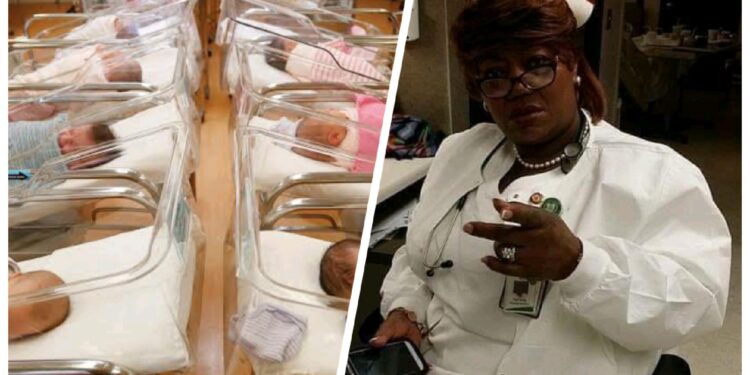
A dying nurse has come forward on her deathbed and alleged to have swapped more than 5,000 babies simply for the amusement that such an activity would give her in the moment.
Should this story be believed or is it simply another hoax? The story’s details are as seemingly fantastical as they are disturbing. Is this the worst maternity ward nurse the world has ever seen?
The Zambia Observer reports that the nurse going by the name of Elizabeth Bwalya Mwewa honed a personal habit of switching up babies for the amusement such an activity would bring her.

The incidents are alleged to have taken place at the University Teaching Hospital in Lusaka, Zambia.
The nurse is coming forward now because she’s being eating alive by cancer. She wants to recant and atone as far as possible given the heinous nature of her crimes.
The death-bed confession inspires as many questions as answers.
Can forgiveness be given for someone who has done something like this? Should the adults be notified about the purported mix-up from years gone by?
The Observer found that these incidents span a dozen years from 1983 all the way through to 1995.
The full scope of what this nurse is purported to have done therefore takes on huge proportions in terms of the number of people potentially affected.
The response from social media has been loudly opinionated, almost apoplectic.
The truth, though, may be far more banal since the Lusaka Times couldn’t find any corroborating evidence or records of a nurse going by the name of Mrs. Mwewa in their history.
Establishing such an individual would be the first step in corroborating the story, but this one might be dead on arrival.
What’s curious is that there does appear to be a Mrs. Mwewa out there who is stubbornly keeping with her earlier claim.
To her mind, Mwewa is atoning for some vast, unspeakable crime spree that occurred over a dozen years.
Until further evidence is forthcoming, this story will have to be assigned to the moot category.
Stories about babies switched at birth are sometimes proven to be true and, in that sense, these confessors are vindicated.
Two babies in the Indian state of Assam were said to be swapped in 2015, and that story was later found to be true, though shocking.
Sometimes truth is stranger than fiction, indeed. Nonetheless, Mrs. Mwewa remains adamant.
As news of the dying nurse’s confession spread like wildfire, both outrage and skepticism filled the hearts and minds of people around the world. The tale was unfathomable – a nurse, entrusted with the care of innocent newborns, engaging in a twisted game of swapping babies for her own amusement. It was a story that sent chills down one’s spine, questioning the depths of human depravity.
Yet, with no concrete evidence to support the nurse’s claims, doubts began to emerge. The Lusaka Times, a reputable news source, failed to find any records or substantiating evidence of a nurse named Mrs. Mwewa working at the University Teaching Hospital during the alleged years. Skeptics argued that without proof, this confession could easily be dismissed as a cruel hoax, exploiting the emotions of unsuspecting readers.
However, amidst the skepticism, one unyielding voice stood firm – the voice of Mrs. Mwewa herself. She fervently held onto her confession, adamant that she was seeking redemption for a crime spree that tormented her conscience for years. It was as if the weight of her wrongs had become unbearable, and she sought solace at the precipice of death.
The gravity of the situation could not be ignored. If her claims were true, the scale of the repercussions would be unimaginable. Over 5,000 families could have unknowingly raised children who were not biologically theirs. The ripple effects of such a revelation would create a maelstrom of emotions, tearing at the fabric of trust and love that binds families together.
But for now, the story remained stranded in limbo, awaiting further evidence to either confirm or debunk the shocking confession. Until then, it lingered in the realm of uncertainty, where truth and fiction intermingled. The world held its breath, longing for closure, for justice, and for the restoration of shattered lives.
The unsettling truth is that stories of swapped babies at birth have emerged before, leaving a scar on the hearts of those affected. The case in the Indian state of Assam proved the unthinkable to be real, leaving no room for doubt. In such instances, those who confessed found vindication in the truth. And so, while the skeptics argued for caution, the possibility of Mrs. Mwewa’s truth could not simply be discarded.
Until the day arrives when definitive evidence surfaces or the confession is disproven, society will grapple with the implications of this shocking story. The fate of those affected, the question of forgiveness, and the need for transparency for families all hang in the balance. Only time will reveal the truth behind Mrs. Mwewa’s alleged crimes, and until then, the world waits, torn between hope and disbelief.











